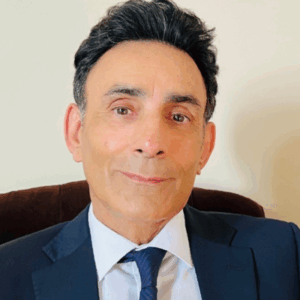

If you’re searching for a drug and alcohol rehab center near Florence, KY, Louisville Addiction Center provides flexible outpatient care that adapts as you move forward in recovery.
Our programs include Partial Hospitalization (PHP), Intensive Outpatient (IOP), and standard Outpatient (OP), so you can step down gradually while working with the same trusted clinical team.
We also offer medication-assisted treatment (MAT) and dual diagnosis support, making it easier to manage both addiction and mental health challenges in one place.
Substance abuse in Florence, Kentucky, represents a significant concern that mirrors the growing trends seen across many U.S. cities. The availability of strong resources and recovery programs in this area plays a pivotal role in combating addiction’s impact on the community.
Recent data indicates a troubling surge in substance abuse rates, affecting a broad demographic segment in Florence, Kentucky. Reports from regional health studies have highlighted an overall 147% increase in substance use, particularly noted in younger populations.
This dramatic rise encompasses various substances, with a notable escalation in vaping and opioid misuse. The proliferation of substance abuse in youth poses severe risks, emphasizing the urgent need for targeted intervention strategies.
This data underscores the importance of accessible, specialized treatment options offered by local Florence, Kentucky Drug and Alcohol Rehab Resources, ensuring support is within reach for those in need.
Louisville Addiction Center may be located in Louisville, but many clients from Florence and surrounding Northern Kentucky communities come here for care because of our broader continuum of services.
Unlike smaller programs, we provide multiple levels of outpatient treatment so you can transition from daily structure to weekly support without losing connection to your team.
Our clinicians specialize in both addiction and mental health, offering dedicated tracks for alcohol, opioids, stimulants, and co-occurring conditions like anxiety, depression, or trauma.
To make travel manageable, we offer clustered appointments, evening IOP scheduling, telehealth check-ins, and sober-living referrals. Families in Florence can access the same high-quality care as Louisville residents with flexible options that keep treatment realistic and supportive.

Detox is the medically managed clearing of drugs or alcohol from your body; rehab is the longer-term counseling and skill-building that follows. During detox, the brain and nervous system rebound after months or years of chemical suppression, and that rebound can be dangerous.

When cravings keep overruling your best intentions, sheer willpower rarely carries you to the finish line. That’s why drug treatment in Louisville at Louisville Addiction Center pairs accredited clinicians with evidence-based therapies, turning the turmoil of active use into a clear, step-by-step path to lasting sobriety.

Our partial hospitalization program (PHP) is the most common level of care that we have to offer. Our PHP program for substance abuse treatment in Louisville, KY offers intensive care as well as a flexible schedule that will allow our clients to remain plugged into normal life. During our PHP in Louisville, Kentucky, our clients are in our program for 30 days.

Following PHP, clients might need to continue treatment while getting back to everyday life. Our intensive outpatient program (IOP) offers treatment for several hours throughout the week, yet with more flexibility than PHP. That way, clients can begin to use the skills they learn while tending to other obligations, like family, school, or work.

The outpatient program during Louisville rehab is the least restrictive program we offer. Often, clients meet with a therapist or group for about one hour per week. Most clients in our outpatient program have the skills needed to stay healthy outside of treatment. Yet, they still need to refine their recovery skills in the real world with professional support and guidance.

At Louisville Addiction Center, we offer rehab for veterans in Louisville, Kentucky. As a veterans addiction treatment center, we provide TRICARE addiction treatment for veterans. Veterans have unique needs when it comes to substance abuse and mental health disorders. We understand that and offer specialized treatment.
At Louisville Addiction Center, you’ll find a mix of clinical services designed to stabilize people and teach recovery skills: individual therapy, group therapy, trauma therapy (including EMDR), family work, and holistic supports like mindfulness and life-skills groups.
Programming is delivered through our day-treatment and outpatient offerings (PHP, IOP, and OP) and can include medication-assisted treatment and medically supervised detox when clinically appropriate.
Expect a focus on practical skills like relapse-prevention, coping strategies, and peer support delivered by licensed clinicians who monitor progress and adjust the plan as needed. If you’re coming from Florence, admissions will review which program fits your needs and explain scheduling, follow-up options, and local referrals so care is realistic and safe.
Louisville Addiction Center offers individual therapy as a core service. Licensed clinicians provide one-on-one sessions alongside group work to personalize care.
Those individual sessions are used for clinical assessment and treatment planning, trauma-focused work, psychiatric medication review when needed, and skills practice tailored to each person’s triggers and goals.
The practical benefit: focused clinical attention lets clinicians target symptoms, develop individualized safety and relapse prevention plans, and strengthen the therapeutic relationship that supports lasting change. Many clients combine individual sessions with group therapy and family work, so the treatment plan addresses both personal needs and social supports.
Our center emphasizes individualized treatment plans and family-focused work that respond to each client’s history and needs. Clinicians can address gender-sensitive topics such as trauma, parenting, vocational reintegration, and relationship repair within individual and group sessions.
If you have preferences about group composition or privacy needs, raise them at intake and admissions, and the clinical team will discuss options that protect dignity and support your recovery plan. This keeps the focus on clinically appropriate care rather than fixed, hard-coded tracks.
Louisville Addiction Center takes a coordinated approach to co-occurring conditions so substance use and mental health needs are assessed and treated together. Every intake includes a co-occurring assessment and, when clinically appropriate, psychiatric evaluation and medication management.
Treatment blends evidence-based psychotherapies like cognitive behavioral therapy (CBT), dialectical behavior therapy (DBT), trauma-focused approaches (such as EMDR when offered), motivational interviewing, and family therapy so clinicians can match modalities to the person’s history and goals.
Care plans are written to combine behavioral and medical supports, with clinicians and prescribers communicating regularly to reduce symptom overlap and lower relapse risk. That combined planning helps people address depression, anxiety, PTSD, and other co-occurring issues alongside substance use, improving day-to-day functioning and long-term recovery potential.
We maintain a vetted referral network to help people leaving treatment find safe housing and local supports, including help locating sober living options in Florence, KY, when appropriate. Admissions keeps an updated list of sober-living homes, alumni supports, and nearby meeting hubs and will connect Florence residents with options that fit their recovery plan.
Typical aftercare sequencing is designed around the clinical plan: step-down supports → outpatient follow-up or sober living → telehealth check-ins and community recovery groups.
We also provide practical assistance, such as transportation suggestions, local meeting schedules, and partnerships with outpatient providers, so the transition from clinic care back to daily life is as seamless and supportive as possible.
988 Suicide & Crisis Lifeline: This lifeline provides 24/7 support for individuals experiencing a mental health, substance use, or suicidal crisis. Calls, chats, and texts are directed to trained crisis counselors.
Recovery Kentucky: A program designed to help Kentuckians recover from substance abuse and avoid chronic homelessness. The program aims to reduce homelessness and substance abuse, saving tax dollars by decreasing the need for emergency services.
Operation UNITE: Offers a toll-free referral and helpline (1-866-908-6483) for individuals seeking assistance with substance use disorders. The initiative provides information about treatment programs and supports low-income individuals with treatment vouchers.
By facilitating access to these crucial resources, we ensure support is readily available for those in need, fostering a community committed to healing and resilience.
Hear directly from those who have walked the path to recovery. Our patients’ stories highlight the compassionate care, effective programs, and life-changing support they’ve experienced. Let their journeys inspire you as you take your first steps toward healing.
At the core of Florence, Kentucky’s response to the growing substance abuse problem, the benefits of attending a rehab facility for recovery are substantial and multifaceted. Thus, Florence, Kentucky Drug and Alcohol Rehab Resources play a pivotal role in this process. Whether you know someone battling addiction privately or supporting someone through the process, understanding these benefits is crucial.
By harnessing these benefits, rehab centers in Florence, Kentucky, provide not just a path to recovery, but a foundation for a renewed, healthy lifestyle. Moreover, each facility stands ready to aid individuals in reclaiming their lives from addiction.
Admissions begin with a confidential intake assessment that reviews substance use history, medical needs, mental health concerns, safety, and social supports.
From that assessment, clinicians recommend an appropriate level of care and create an individualized, measurable treatment plan that outlines therapy goals, session frequency, and any recommended medication reviews.
If medication management is indicated, psychiatric follow-up and coordination with prescribers are arranged.
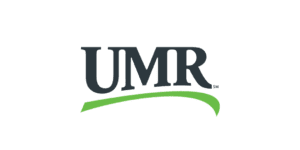
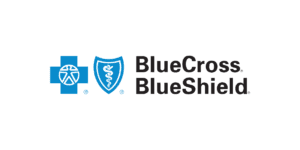
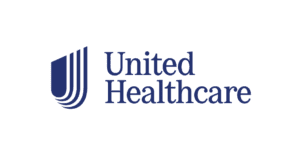
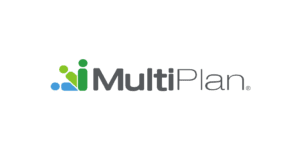
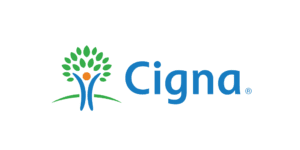

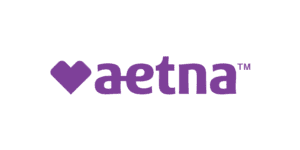
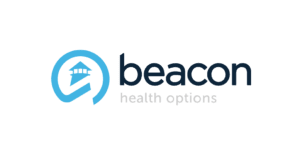
Get Family Support Now
We understand addiction affects the whole family. Our comprehensive family program helps rebuild trust and restore relationships.
Weekly Family Therapy Sessions
Educational Workshops
Support Groups
Communication Skills Training
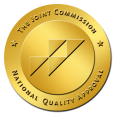

Centers for Disease Control and Prevention. (2025, June 9). Heroin. Overdose Prevention. U.S. Department of Health & Human Services. Retrieved August 22, 2025, from https://www.cdc.gov/overdose-prevention/about/heroin.html
Centers for Disease Control and Prevention. (2025). Understanding the opioid overdose epidemic. Overdose Prevention. U.S. Department of Health & Human Services. Retrieved August 22, 2025, from https://www.cdc.gov/overdose-prevention/about/understanding-the-opioid-overdose-epidemic.html
Centers for Disease Control and Prevention, National Center for Health Statistics. (2025, March 17). FastStats – Drug overdoses. Retrieved August 22, 2025, from https://www.cdc.gov/nchs/fastats/drug-overdoses.htm
Kentucky Office of Drug Control Policy & Kentucky Injury Prevention and Research Center. (2025). 2024 Kentucky drug overdose fatality report. Commonwealth of Kentucky. Retrieved August 22, 2025, from https://odcp.ky.gov/Reports/2024%20Drug%20Overdose%20Fatality%20Report.pdf
Centers for Disease Control and Prevention. (2025, August 7). SUDORS dashboard: Fatal drug overdose data. U.S. Department of Health & Human Services. Retrieved August 22, 2025, from https://www.cdc.gov/overdose-prevention/data-research/facts-stats/sudors-dashboard-fatal-overdose-data.html
Kentucky Justice & Public Safety Cabinet. (2023). Gov. Beshear: Overdose deaths decline for second-straight year. Commonwealth of Kentucky. Retrieved August 22, 2025, from https://justice.ky.gov/News/Pages/24overdosefatalityreport.aspx

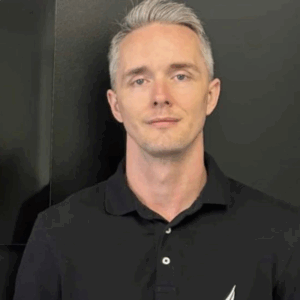

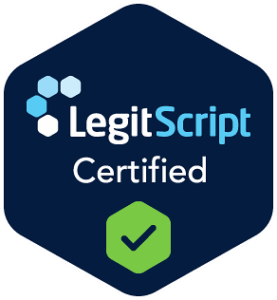
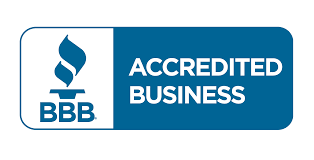


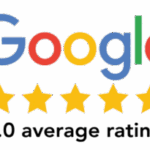

Centers for Disease Control and Prevention. (2025, June 9). Heroin. Overdose Prevention. U.S. Department of Health & Human Services. Retrieved August 22, 2025, from https://www.cdc.gov/overdose-prevention/about/heroin.html
Centers for Disease Control and Prevention. (2025). Understanding the opioid overdose epidemic. Overdose Prevention. U.S. Department of Health & Human Services. Retrieved August 22, 2025, from https://www.cdc.gov/overdose-prevention/about/understanding-the-opioid-overdose-epidemic.html
Centers for Disease Control and Prevention, National Center for Health Statistics. (2025, March 17). FastStats – Drug overdoses. Retrieved August 22, 2025, from https://www.cdc.gov/nchs/fastats/drug-overdoses.htm
Kentucky Office of Drug Control Policy & Kentucky Injury Prevention and Research Center. (2025). 2024 Kentucky drug overdose fatality report. Commonwealth of Kentucky. Retrieved August 22, 2025, from https://odcp.ky.gov/Reports/2024%20Drug%20Overdose%20Fatality%20Report.pdf
Centers for Disease Control and Prevention. (2025, August 7). SUDORS dashboard: Fatal drug overdose data. U.S. Department of Health & Human Services. Retrieved August 22, 2025, from https://www.cdc.gov/overdose-prevention/data-research/facts-stats/sudors-dashboard-fatal-overdose-data.html
Kentucky Justice & Public Safety Cabinet. (2023). Gov. Beshear: Overdose deaths decline for second-straight year. Commonwealth of Kentucky. Retrieved August 22, 2025, from https://justice.ky.gov/News/Pages/24overdosefatalityreport.aspx









Get Family Support Now
We understand addiction affects the whole family. Our comprehensive family program helps rebuild trust and restore relationships.
Weekly Family Therapy Sessions
Educational Workshops
Support Groups
Communication Skills Training


Hear directly from those who have walked the path to recovery. Our patients’ stories highlight the compassionate care, effective programs, and life-changing support they’ve experienced. Let their journeys inspire you as you take your first steps toward healing.
Louisville Addiction Center is helping people in Kentucky overcome addiction and mental health challenges.